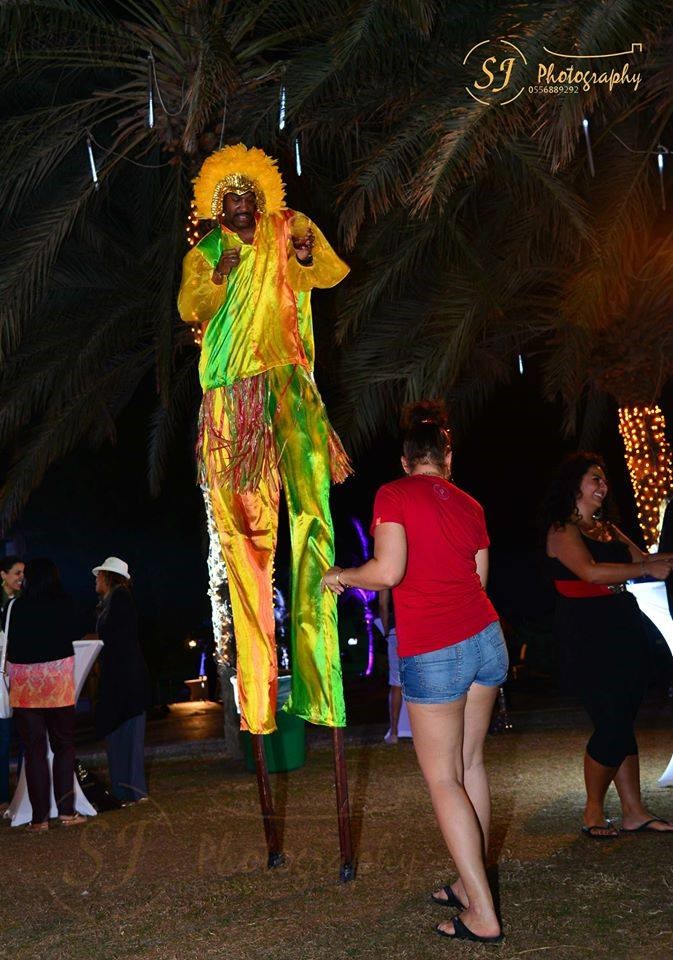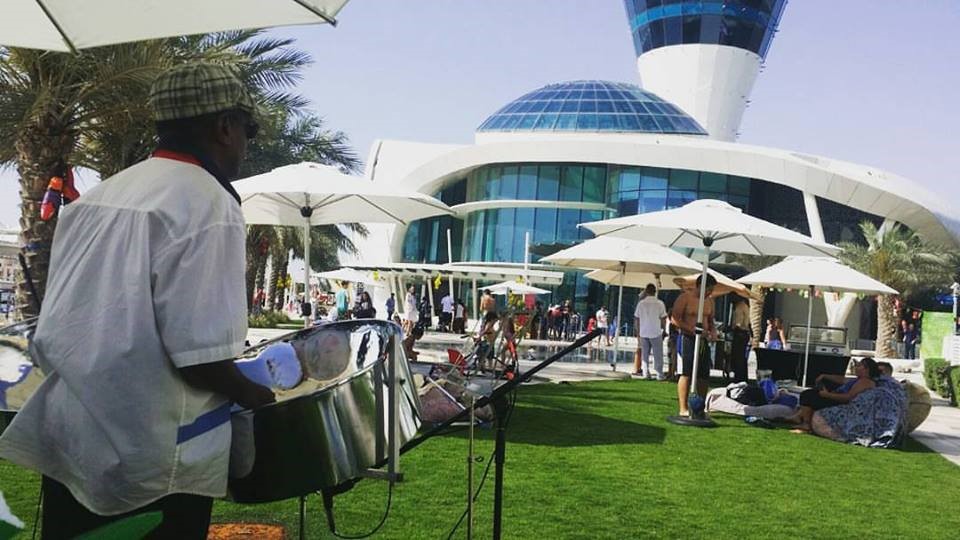.jpg) |
|
Cultural Entrepreneur Ethan Auguste Brings Trinbago to the World
When Tony-Award winner Harry Belafonte dropped his hit album, Calypso in 1956, he took the world by storm, introducing the Trinbago-born genre to a much wider audience that could be reached by any singular Trinbago native at the time, and remaining at the number-one spot on the Billboard Pop Albums for 31 unprecedented weeks. The Andrews Sisters had about same effect on the American public just under a decade earlier, with their cover of Lord Invader and Lionel Belasco’s “Rum and Coca-Cola”, which was notoriously co-opted by the US record label, leaving Invader and Belasco out of the credits.
Our music has come a long way since then, and it has made its way back onto the Billboard charts, this time, thankfully, presented by our own, as Fay Ann Lyons’ Break the World debuted at number 3 on the Reggae Albums chart back in March.
With the increasing number of producers looking to the islands for inspiration to craft what is becoming part of the mainstream urban sound, the green light seems to be shining on the Antilles, in turn, allowing Trinbagonian music and culture to find greater appreciation overseas.

Cultural entrepreneur Ethan Auguste has been making tireless efforts to ensure that this new attention bears fruit. The founder of Thrive International, a Dubai-based entity that organises cultural showcases for musicians, artisans and fashion designers from the region in the Middle East, has been exporting aspects of our vibrant culture for the last four years. Auguste, who, due to the Trinbago-based nature of his work, makes frequent trips back home to Trinidad, has recently expanded the business to include local operations. “We’re starting to build a network of people to export talent,” the 32-year-old explained.
Auguste’s shift in focus did not prove in vain, as the company’s promotional efforts managed to get local pop act, Kalpee to catch the attention of SONY Middle East, who promptly signed the singer and issued his first single, “No One”, earlier this year, with another soon to follow. With its catchy urban sound borrowing EDM influences and channelling a Caribbean feel, the video for the single has already hurling towards four million views, which augurs only more positive things on the horizon, not only for the young singer, but for our region and its music. “I see a lot of good things [for Kalpee], especially in Europe, Asia and Australia,” Auguste predicted. “I see his music and his name becoming more known as well.”
A Trinbagonian artist snagging a distribution deal with a major label is no small feat and only the early results of the groundwork laid by Auguste and his company where appreciation of a Trinbagonian sound is concerned. Auguste also leads Caribbean Vybez, an events company that exports aspects of the Trinidad Carnival experience and of soca music to the Middle East. The group has previously collaborated with Kees Dieffenthaller and Destra, along with a number of other soca artists hailing from other Caribbean countries, among them, Barbadian soca songstress, Alison Hinds, who has become somewhat of a Trinbagonian staple during the Carnival season, herself.

While Auguste reported that the response has been fantastic, he did admit, though, that it took some doing. “When I started doing club events nine years ago,” he explained, “I could only have played about three or four soca songs for the night; now, just about an hour of soca is played.” The grooming of the Middle Eastern audience to appreciate soca music is a yet-ongoing process of tireless marketing, which is not without great efforts in the way of consistent product development, experimentation and, without losing its essence, a degree of adaptation, to ensure that the sound to be exported is palatable.
Auguste laments that the market for soca music is still small and that prudent decisions need to be taken when it comes to putting our music out there for best results. He claims that the “new style of soca”, implying the growing trend to include EDM elements in soca music as well as the overall popularity of “groovy beats” help to make our groovy soca a very marketable subgenre. Furthermore, Auguste suggests that broadening the range of lyrical content could have a significant impact on the music’s marketability. “The content is what makes the change,” he asserted. “We create songs for the road but not for everyone else; when you’re dealing with an international market, they don’t [always] understand the ‘jumping’, ‘waving’ and ‘misbehaving’,” he chuckled.
All the same, the Trinidad Carnival experience still proves to be highly attractive, and increasing numbers of foreigners become introduced to it every year, often with favourable results. This year, Geneva, Switzerland held its very first Carnival in the form of a series of weekend events, one of which was a marked presence in the Geneva Lake Parade, an annual street party that attracts thousands of patrons. The Geneva Carnival organisers incorporated a music truck, playing soca music at the festivities. “Persons followed and stayed with the truck until the very end,” Auguste recalled. “The majority of the patrons would not have heard the music before and since then, I’ve come across people who now have soca songs as their ringtones and part of their playlists.”

With all the ground left to cover in the European market, in terms of further exporting Trinbagonian music and culture, Auguste relocated to Geneva in April to extend the work of both Caribbean Vybez and Thrive International. He’s currently working in tandem with the team that organised the Geneva Carnival and has already managed to complete the preliminary planning stages of an event to showcase Trinbagonian musicians and fashion designers next June. His next step is to begin work on steelpan projects over in Dubai, continuing his relationship with Trinbagonian native, pannist, Hugh Poteon, who has performed at Thrive International events in the past.
“We have to get rid of the crabs-in-a-barrel mentality,” Auguste warned, lamenting that he’s observed some of those tendencies among Trinbagonians in the entertainment industry. “People get threatened and don’t open opportunities.” He urged members of the industry, both striving and successful alike against selfishness and inward behaviours if the intention is to foster success. “If one of us gets in, all of us get in; I don’t see competition, I see partnership because when we come together, we’re stronger, and a lot can get done.”
All photos are courtesy of Ethan Auguste.
| By: Tevin R. Gall | MUSIC-CULTURE | April 2018 |
Tweet |
Warning: array_search() expects parameter 2 to be array, null given in /home/paradisepulsea/public_html/pages/article.php on line 87
Warning: in_array() expects parameter 2 to be array, null given in /home/paradisepulsea/public_html/pages/article.php on line 104
Warning: array_search() expects parameter 2 to be array, null given in /home/paradisepulsea/public_html/pages/article.php on line 87
Warning: in_array() expects parameter 2 to be array, null given in /home/paradisepulsea/public_html/pages/article.php on line 104
Warning: array_search() expects parameter 2 to be array, null given in /home/paradisepulsea/public_html/pages/article.php on line 87
Warning: in_array() expects parameter 2 to be array, null given in /home/paradisepulsea/public_html/pages/article.php on line 104


| Subscribe |










%20-%20Copy.jpg)

